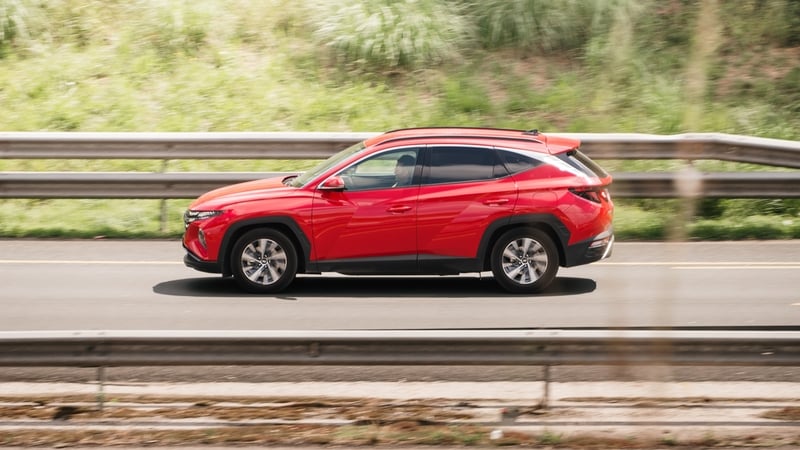New analysis by OUTsurance Ireland shows that Irish motorists can expect to spend an average of €10,373 a year to keep an average petrol or diesel car on the road in 2025.
Today’s figures show that from maintenance and depreciation to fuel and parking, the cost of running a car now equates to €864 a month or about €28 a day.
OUTsurance used Ireland’s most popular car – the Hyundai Tucson – as a benchmark for its research.
It found that the steepest cost comes from depreciation – a 2024 Hyundai Tucson valued at €40,000 will have depreciated by about €6,274 over the course of this year, based on standard valuation tools, the insurance company said.
Fuel is also a significant outlay for most drivers, especially amid ongoing price fluctuations.
OUTsurance said that based on SEAI data, fuel costs €10.40 per 100km at a price of €1.76 a litre for petrol or €8.60 per 100km based on a cost of €1.68 a litre for diesel as of July.
For a 1.6L Hyundai Tucson travelling 15,000km a year, this translates to approximately €1,560 a year, it added.
Meanwhile, according to the Central Bank’s 2024 National Claims Information Database, the average car insurance premium in Ireland is about €616, while motor tax is estimated at €435 a year – depending on vehicle emissions.
NCT Testing costs €60 a year, while frequent motorway users will spend up to €208 a year on tolls, assuming 80 trips at an average cost of €2.60 each.
Parking costs range from €1.20 to €5 per hour, depending on the location and as a result, the average motorist can pay for parking for around 156 hours in a year, equating to €484 a year.
Finally, OUTsurance said that annual upkeep, from regular servicing (€249) to unforeseen costs such as replacing tyres and general maintenance like car washes, totals €736 a year on average.
OUTsurance CMO Ian Kennedy said the unforeseen costs of car ownership often catch people off guard and while most motorists factor in fuel and insurance, many overlook the expenses that can significantly add up like a new set of tires and tolls.
“Costs that haven’t been budgeted for can be tricky to deal with considering the impact of inflation on people’s purchasing power,” he said.




